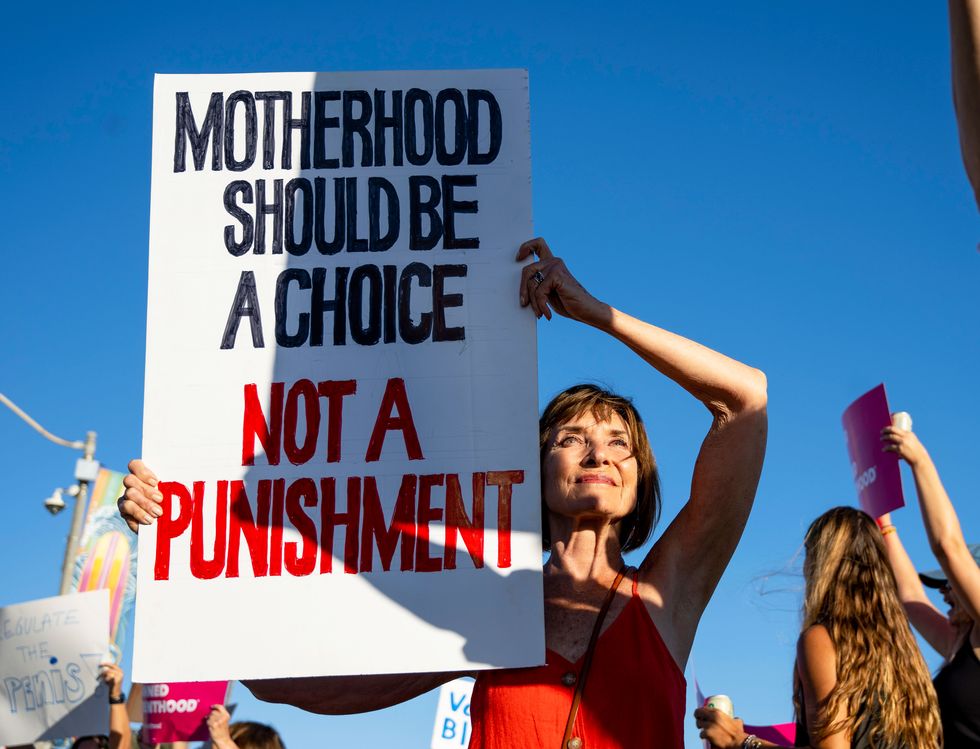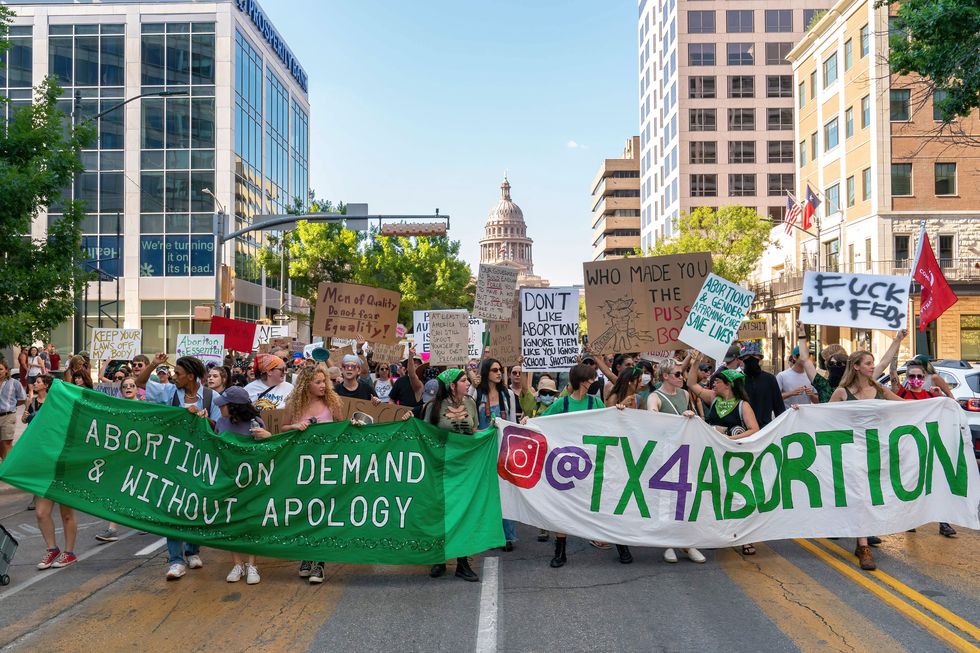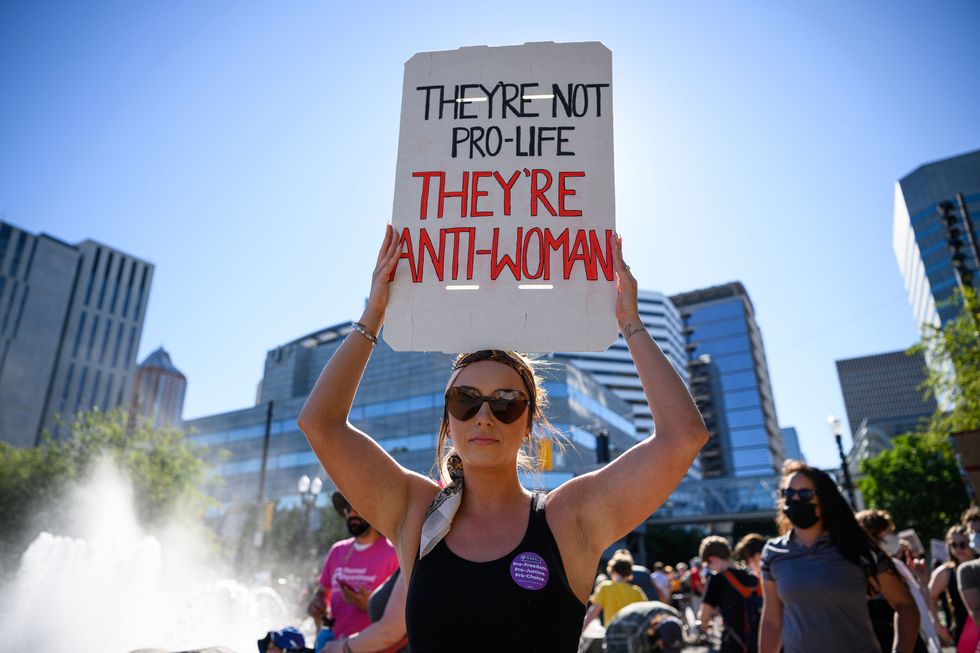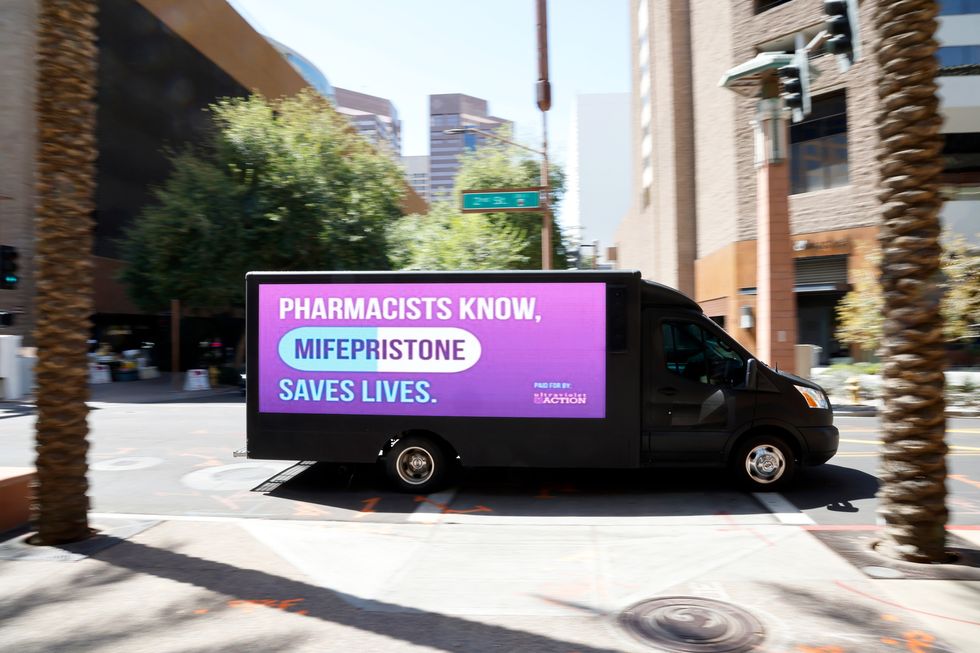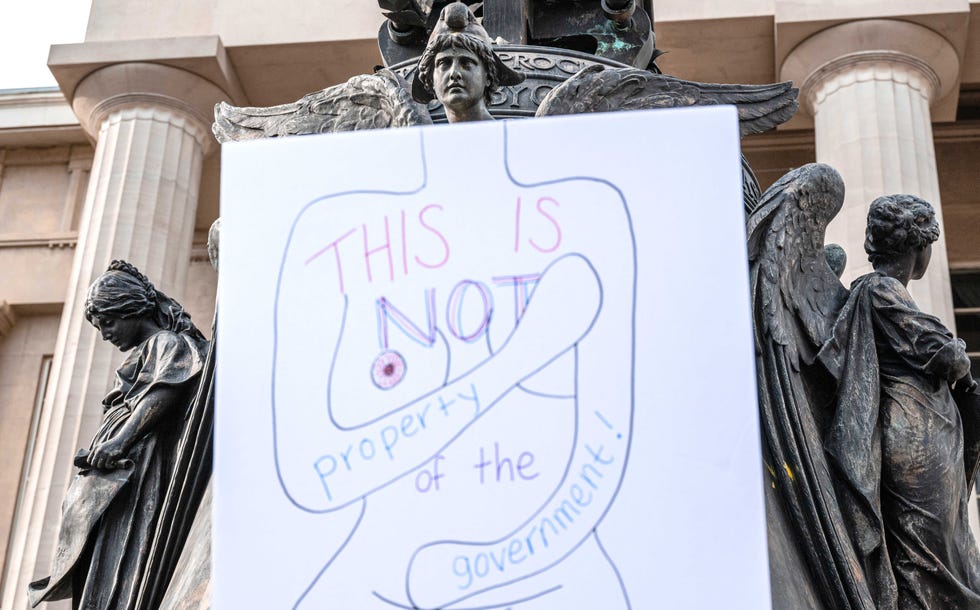Planned Parenthood’s Alexis McGill Johnson on How We’ll Win Back Reproductive Rights
Say you’re the mom of two young children in San Antonio struggling to make ends meet on a minimum-wage job. You become pregnant and mentally, financially, emotionally, you know you cannot afford to grow your family. Not now. Maybe not ever.
One in three women across the country—plus trans and nonbinary people—cannot get abortion care in their state. Texas bans all abortion. A 400-mile trip to New Mexico is the “easiest” way to get the care you need. But at what cost?
Paid time off is not a thing at your hourly job; you’ll need to miss at least two days’ pay and plead with someone to work your shifts. If your 2012 Hooptie acts right, gas will cost nearly $200. You will also need overnight accommodations, meals, and child care, plus $550 for the procedure. All in, getting an abortion would cost $1,733—or about two months rent in San Antonio’s most affordable neighborhoods.
To protect your safety and as well as your friends and loved ones from possible prosecution, you know it’s best to move in silence. Texas’s abortion ban has a vigilante provision, meaning anyone who helps you could be charged with a crime, so you find yourself looking over your shoulder everywhere you go.
At Planned Parenthood, and throughout the reproductive rights movement, we’ve seen this scenario play out for too many people in too many states. When the Supreme Court decided a year ago this month to strip our rights and hand states the power to ban abortion, we knew versions of this modern-day Odyssey to get abortion care would play out in real time for tens of millions of people. The reality is far more devastating and inhumane than anything we could’ve dreamed.
Abortion is banned in 20 states and counting; patients across the country face chaos and anguish; doctors are forced to prioritize politics over medicine; and the already-strained abortion provider network is struggling to keep pace with demand. At one California Planned Parenthood health center, the influx of patients coming from Arizona has soared by 847 percent. It is not sustainable.
So now what? In these United States—land of the free—how do we beat back cruel policies, archaic ideals, and political agendas to truly get free and have control of our own bodies? Alice Walker once said: “The most common way people give up their power is by thinking they don’t have any.”
We have the power. You are the power. The numbers are on our side. What we do now is fight like hell. Not to regain or restore the rights the court has taken. We rework, reimagine, and rededicate ourselves to building a just world that includes nationwide abortion access for all. Will it be tough? Hell yeah. Will we get tired? At times. But trust and believe anti-abortion lawmakers, activists, even judges don’t know who they’re dealing with. Despite the out-of-touch echo chamber these people have been living in, we’ve known for years that bans on reproductive health are deeply unpopular: 85 percent of Americans want abortion to be legal.
We can do this. In fact, already in cities all across the country, you are writing the playbook. When you turn out in the streets to march, show up at the polls to elect reproductive rights champions and win ballot measures to protect abortion access—you are doing the damn thing.
I’m not going to lie. This time last summer, I was angry, I was tired, and I was more than a little scared. But then, just weeks after the court took away federal rights to abortion, voters in Kansas overwhelmingly defeated an anti-abortion ballot initiative. Then, in the 2022 midterm elections, five states—Kentucky, Montana, Michigan, Vermont, and California—put abortion on the ballot and voters in all five chose to protect or expand abortion rights, sending a loud, clear message that support for abortion cuts across party lines. In last year’s midterm elections, our movement won critical races that will help protect abortion access in states like Pennsylvania, Arizona, and Wisconsin.
We’ve got the will and the might to get abortion rights back in the U.S. Constitution. And I don’t say that lightly. Our job right now is to go beyond Roe and guarantee anyone who needs abortion care can get it, no matter where they live or who they are—something that Roe never did. It won’t happen overnight—what we do in the next two years will define the next 20. And we have to fight on several fronts at once: state by state, the federal level, and for democracy itself.
Now I have to tell you, this road ahead will be tough. These politicians are hellbent on robbing freedom, and they have lots of tricks up their sleeves. Now that they can see that this movement is on fire, they don’t want our smoke.
So what do anti-abortion politicians and activists have in store? For starters, many of the presidential candidates in the Republican primary, along with their allies, are trying to cloak their anti-abortion agendas in “compromise” clothing like 15-week abortion bans. And, after record turnout and decisive victories for pro-abortion ballot measures in the midterms, state legislators want to change the ballot initiatives process to ignore the will of the people.
As we long suspected, Roe’s overturn is just the beginning—these lawmakers are pushing a nationwide abortion ban through Congress. And, ICYMI, anti-abortion activists are now exploiting the judicial system—judge shopping—as a way to cut us off at the pass. Case in point: The mifepristone case in Texas, where in an effort to block medication abortion in all 50 states, one man in a Texas federal courthouse, with a law degree—not a medical degree, mind you—and a gavel tried to make a decision for all women, trans, and nonbinary people across the entire country that would’ve controlled our bodies, our lives, and our futures.
That’s why court reform is mission critical right now. Planned Parenthood is starting conversations around expanding the U.S. Supreme Court. It’s long past time to adjust the scales between the courts that rule on the laws and the people forced to obey them. After all, as Martin Luther King, Jr. wrote: “A social movement that only moves people is merely a revolt. A movement that changes both people and institutions is a revolution.”
We are calling for nothing short of transformation to end the seemingly endless battles on the state level. We need 38 states to ratify a new constitutional amendment for reproductive rights. How fast that happens depends on you. Right now, you have an opportunity and a responsibility to make this movement even stronger. In your community and your state, at your workplace, at the cookout—talk with your friends, family, colleagues, and neighbors about joining the fight for reproductive rights. Changing institutions is hard work. It’s going to take imaginative and innovative leadership from not one person, but many.
A year ago, it was easy to invite hopelessness to sit for a while. But hopelessness is not a plan. All of us who are mad as hell about what’s happened to abortion rights should use those feelings to fuel the movement. Fights like the one we face have been won in the past. The people who fought for the right to vote or marry who they love would tell us that there are days, sometimes years, where nothing good seems to happen. Victory won’t come with one election or one ballot measure, but we will win in the end.

Alexis McGill Johnson is the President and CEO of Planned Parenthood Federation of America. She is also the President of Planned Parenthood Action Fund. She served as acting president and CEO for a year, and has been in both organizations’ leadership for more than a decade: as a former PPFA board chair, former Planned Parenthood Action Fund board member, and former Planned Parenthood Federal PAC chair.


